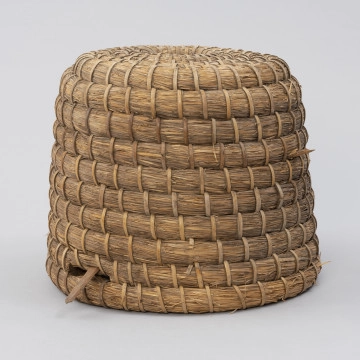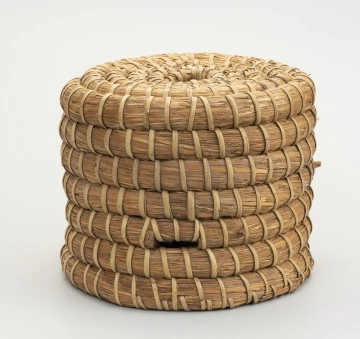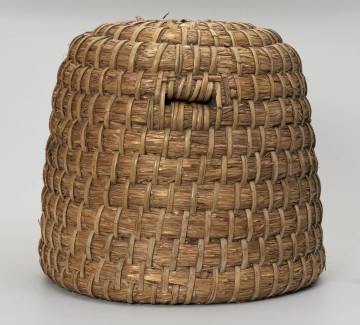
Skep (dome beehive)
1890 — 1910
National Museum in Szczecin
Part of the collection: Beekeeping
Skeps are straw beehives that were initially made in the late 17th and early 18th centuries. They come in a variety of shapes, often resembling a bell, cylinder, or dome, and have different sizes as well. They were widespread in Pomerania, where they became common with the arrival of Dutch settlers. Weaving the skep required a certain amount of skill and precision. These hives had to be sturdy and resilient to adverse weather conditions. A characteristic feature of straw hives was no bottom board - their base was the ground on which they were placed. Nowadays, the most common type of beehive used in large-scale honey production apiaries is the Langstroth hive, the design of which provides the bees with optimum living conditions. They also have the advantage of being easily dismantled, which makes work easier for the beekeeper. Straw skeps cannot compete with them, but in the era of returning to traditional methods of food production, they are used in eco-friendly apiaries and in amateur beekeeping. The presented skep, with its rather rare, squat form, is one of a dozen or so straw beehives found in the ethnographic collection of the National Museum in Szczecin, an endowment given to the museum in 1970. Agnieszka Słowińska
Author / creator
Object type
beehive
Technique
coiling (weaving)
Material
straw, wicker
Origin / acquisition method
donation
Creation time / dating
Creation / finding place
Owner
Muzeum Narodowe w Szczecinie
Identification number
Location / status

1890 — 1910
National Museum in Szczecin

1901 — 1920
National Museum in Szczecin

circa 1900
National Museum in Szczecin
DISCOVER this TOPIC
National Museum in Szczecin
DISCOVER this PATH
Educational path